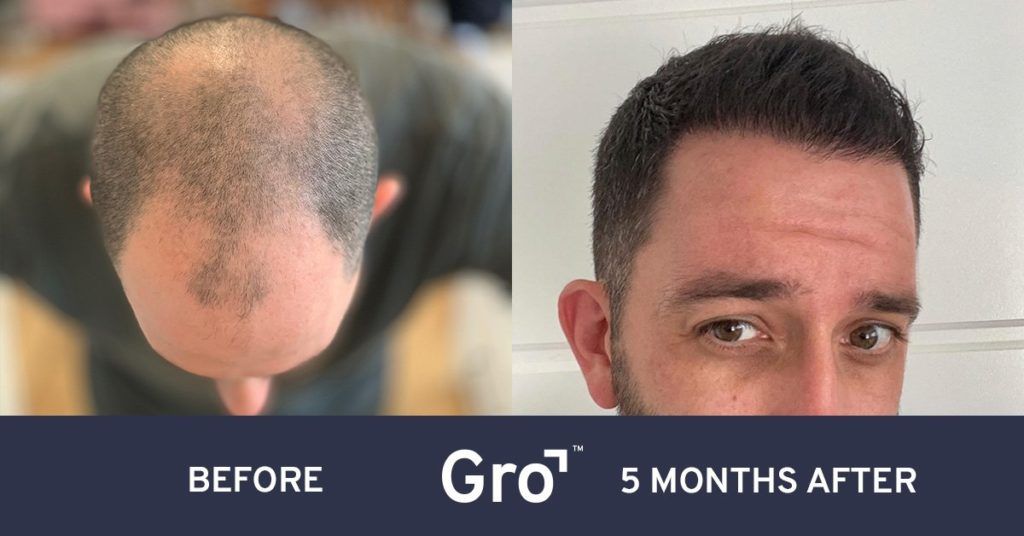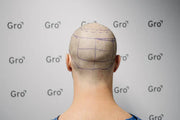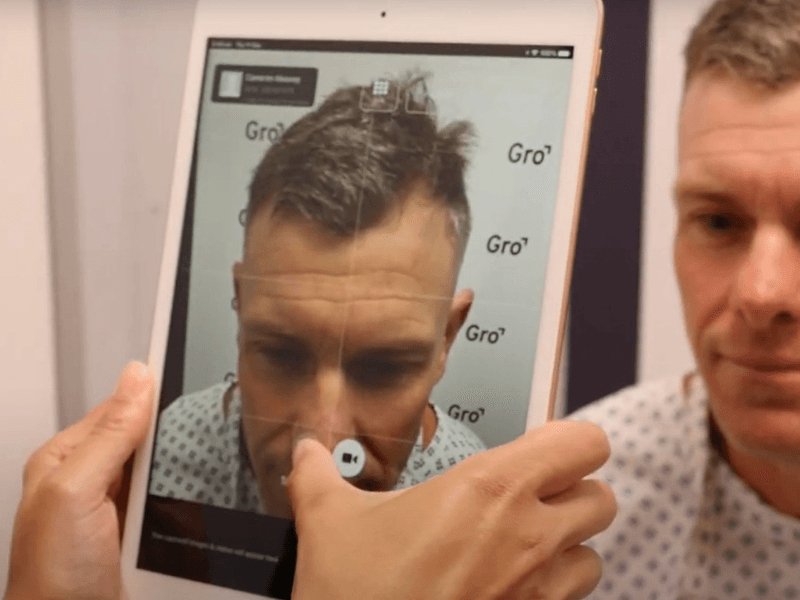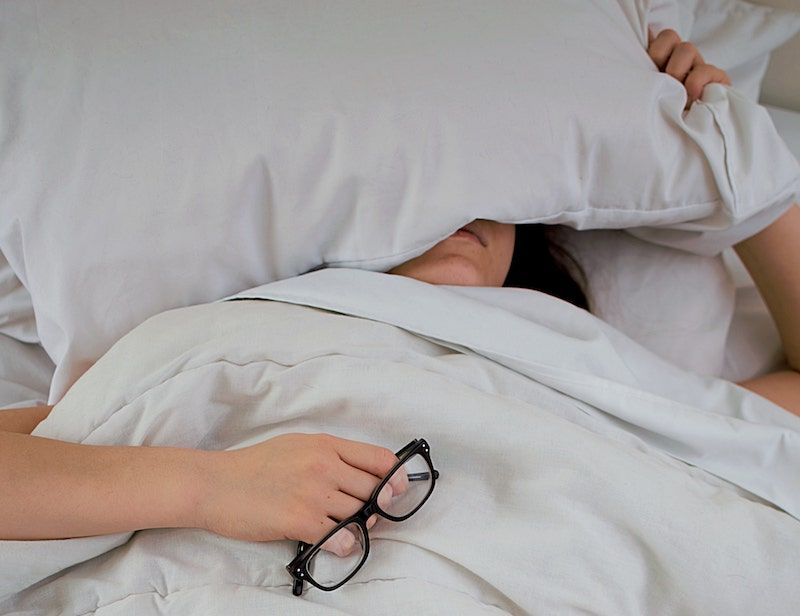When you start to lose hair, the first question on your mind is probably WHY. The second is most likely whether this means you’re going bald permanently.
The future of your locks will depend largely on the cause of the loss. This article explains how hair grows, what counts as normal shedding, what age it’s normal to experience hair loss, as well as the six most common reasons behind it.
If you have hair loss, answer this one question now to discover the best treatment option for you.

How does hair grow?
Did you know that we all lose about 50-100 hairs per day through the normal hair growth and renewal cycle? It might be more noticeable in women because their hair is longer, but this type of normal shedding occurs equally in men.
The normal hair growth cycle has three stages:
1. Anagen is the active phase of new hair formation and growth that lasts for 2-5 years. The rapidly growing hair pushes the old hair in the follicle out as it grows.
2. Catagen is a transitional phase (2-3 weeks) where growth stops and the outer root sheath detaches from the follicle wall.
3. Telogen is the resting phase and lasts for about 100 days for scalp hair. Hair can be either pulled out or shed at this stage.
As we age, some of the follicles stop working, or the anagen phase gets shorter and we shed hair at a faster rate.
At what age do men start losing hair?
Men naturally lose hair with age, both through thinning hair and the maturing of the hairline.
As we age, some of our hair follicles stop working, or the anagen phase gets shorter and we shed hair at a faster rate. This is a normal part of aging and doesn’t necessarily mean you’re going bald.
Here are some stats about what age men start to see signs of balding:
- Two-thirds of men will experience hair loss by age 35
- 85% of men will have significantly thinning hair by age 50
- 25% of men with male pattern baldness (genetic balding) will start to lose hair before age 21
Source: American Hair Loss Association.

Hair loss causes
In some cases, hair loss is not related to age, but to other triggers that disrupt normal hair growth and accelerate hair loss. Some of these effects are reversible, with normal hair growth returning once the trigger is removed. Other factors can’t be reversed without medical help.
The most common causes of hair loss are:
1. Stress
Stress causes a range of health problems, but one of the first symptoms is often hair loss. Unfortunately, losing your hair can be a cause of further stress, making the problem worse. It is common for hair loss to occur a few months after a stressful event, and it may continue until stress levels are managed.
2. Poor diet
When your body lacks essential nutrients, the first thing it will do is stop giving these precious resources to your hair. While we may feel our hair is extremely important to us, growing hair is not a crucial function for our bodies. That’s why a diet that lacks essential nutrients may also result in hair loss. A lack of protein, the main component of hair, can also inhibit follicle growth.
3. Smoking
Hair follicles need nutrients, minerals and oxygen to produce hair. Smoking reduces the amount of oxygen and increases the level of carbon monoxide in the blood supply to the scalp, damaging the hair follicles and interrupting the growth cycle. Luckily, nicotine hair loss may not be permanent. The effects can often be reversed by simply stopping smoking.
4. Hormonal imbalance
Both men and women experience hormonal changes, and associated hair thinning, with age. Additionally, hormonal imbalances, such as thyroid hormone imbalance, can trigger temporary hair loss. In women, hair loss before and after childbirth and menopause happens due to dropping oestrogen levels.
5. Diseases or infections
Many diseases and infections can lead to hair loss. Common contributors are diseases and infections that cause fever, anaemia or damage to the skin (eczema, skin infections and trauma, for example).
6. Genetics
Genetics is by far the most common reason for hair loss and baldness. For about 90% of men and women who experience hair loss, the cause is related to changing hormone levels, a trait that is inherited from your parents.
This type of hair loss is called androgenetic alopecia and it occurs in a distinctive pattern (also known as male pattern hair loss or male pattern baldness) that can begin any time after puberty and becomes progressively more noticeable with age. Male pattern baldness accounts for over 95% of all male hair loss.
While there’s no cure for androgenetic alopecia just yet, it can be managed with prescription medication and even reversed with a hair transplant.
What can I do if my hair is falling out?
If you can reduce stress, improve your diet and stop smoking, you may be able to reverse your hair loss without further treatment or improve the success of any treatment you may need.
An accurate diagnosis is really important to determine whether you would benefit from one of the many treatment options available. Over two-thirds of men and women suffering hair loss get some form of treatment without a proper medical diagnosis and then spend a fortune on products that don’t work for them.
Our treatment options are personalised to individual requirements, based on sound medical knowledge and experience. If you are worried about losing your hair or have been thinking about getting treatment for hair loss, come in for a consultation. We can give you an accurate diagnosis and answer any questions you might have about what treatment options are right for you.
To find out the best treatment option for your hair loss, answer this question.
You can also visit the hair transplant Sydney or hair transplant Brisbane, Melbourne Hair Transplant, Gold Coast hair transplant or online hair loss treatment clinic pages for further information, or simply give Gro a call on 1300 787 563.
For further information, see hair transplant before and after photos and hair transplant cost.













